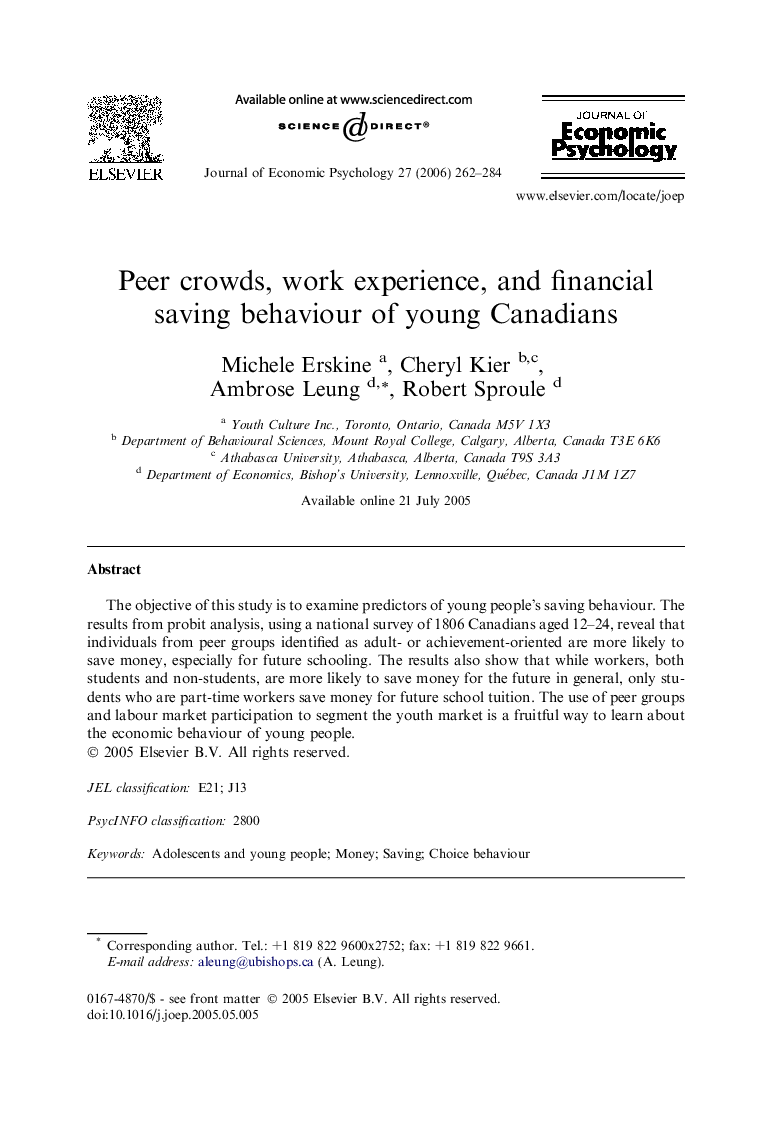| Article ID | Journal | Published Year | Pages | File Type |
|---|---|---|---|---|
| 885487 | Journal of Economic Psychology | 2006 | 23 Pages |
Abstract
The objective of this study is to examine predictors of young people’s saving behaviour. The results from probit analysis, using a national survey of 1806 Canadians aged 12–24, reveal that individuals from peer groups identified as adult- or achievement-oriented are more likely to save money, especially for future schooling. The results also show that while workers, both students and non-students, are more likely to save money for the future in general, only students who are part-time workers save money for future school tuition. The use of peer groups and labour market participation to segment the youth market is a fruitful way to learn about the economic behaviour of young people.
Keywords
Related Topics
Social Sciences and Humanities
Business, Management and Accounting
Marketing
Authors
Michele Erskine, Cheryl Kier, Ambrose Leung, Robert Sproule,
